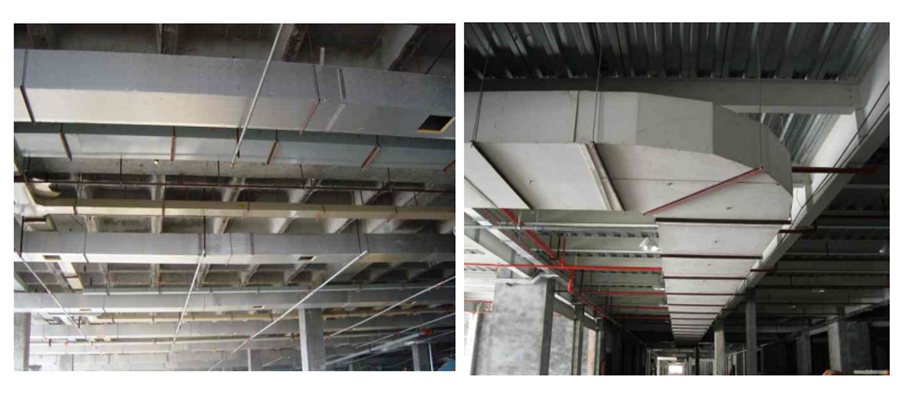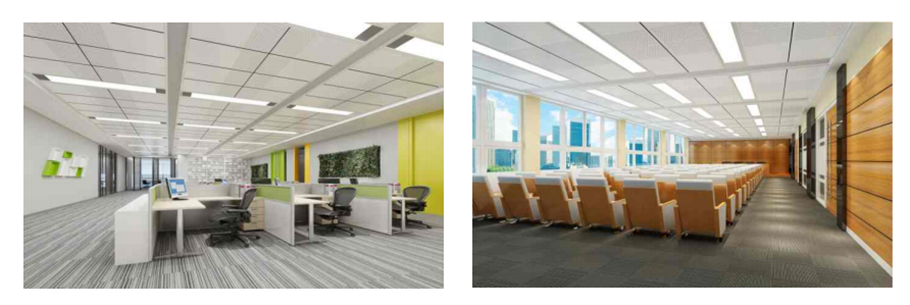
Can Calcium Silicate Boards Be Used in Wet or Humid Environments?
Calcium silicate board is a popular building material that offers a wide range of advantages, including fire resistance, thermal insulation, and moisture resistance. However, many people are unsure whether calcium silicate boards can be used in wet or humid environments.
We will explore the suitability of calcium silicate boards in wet or humid conditions here.

Calcium Silicate Board Can Be Used in Areas Where Moisture Is Present
Calcium silicate board is a moisture-resistant material that can withstand humid environments. It is commonly used in areas such as bathrooms, kitchens, and laundry rooms, where moisture is present. The board is designed to repel water and prevent mold and mildew growth, making it a great choice for these types of environments.
However, it is important to note that while calcium silicate board is moisture-resistant, it is not waterproof. If the board is exposed to water for an extended period, it can become damaged and lose its structural integrity. Therefore, it is crucial to take proper precautions when using calcium silicate boards in wet or humid environments.
Benefits of Using Calcium Silicate Board in Wet or Humid Environments
Using calcium silicate boards in wet or humid environments offers several benefits. The board is moisture-resistant, which means it won't absorb water, preventing the growth of mold and mildew.
Additionally, calcium silicate board is a non-combustible material, making it an excellent choice for areas where fire resistance is a concern.
Applications of Calcium Silicate Board in Wet or Humid Environments
Calcium silicate board is commonly used in various wet or humid environments, including swimming pools, saunas, and steam rooms. It is also used in commercial and industrial applications, such as in food processing plants, where high levels of humidity are present.
Maintenance of Calcium Silicate Board in Wet or Humid Environments
While calcium silicate board is moisture-resistant, it is still essential to maintain it properly in wet or humid environments.
Regular cleaning and inspection can help prevent the buildup of dirt, debris, and other materials that can compromise the board's integrity. It is also recommended to use a moisture meter to detect any moisture issues that may arise.
Installation Considerations
When installing calcium silicate boards in wet or humid environments, it is important to follow the manufacturer's instructions and use the appropriate installation techniques. It is recommended to use corrosion-resistant fasteners and hardware to prevent rust and deterioration over time. Lastly, it is essential to provide proper ventilation to help prevent moisture buildup and promote air circulation.
Other Factors to Consider
It is important to note that calcium silicate board should not be used in submerged applications, such as in swimming pools. Additionally, while calcium silicate board is moisture-resistant, it is not suitable for use in areas exposed to high levels of direct water, such as in showers or bathtub surrounds. In these applications, waterproof materials such as cement boards or waterproof membranes should be used instead.
It is also essential to consider the type of calcium silicate board being used. Some types of calcium silicate boards are specifically designed for use in wet or humid environments. These boards have a higher density and are more moisture-resistant than standard calcium silicate boards, making them a better choice for areas with high levels of moisture.
By taking these factors into consideration, a calcium silicate board can provide excellent protection and durability in wet or humid environments. Its moisture-resistant properties, combined with its fire resistance and ease of installation, make it a popular choice for many applications.

In summary, calcium silicate board can be used in wet or humid environments as long as it is installed correctly and proper precautions are taken.
When using calcium silicate boards in these types of areas, it is important to use a waterproofing membrane, ensure that the board is properly sealed, and consider using a specialized type of board designed for wet or humid environments.






